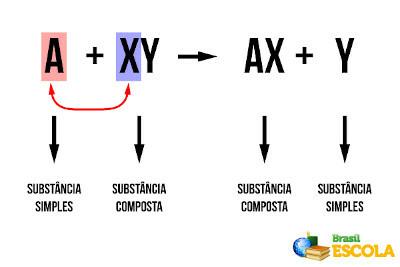Chemical reactions that involve electron transfers between participating species are calledoxido-reduction or oxi-reduction reactions. This is because when a chemical species loses electrons, it is said to have suffered a oxidation, while when you gain one or more electrons, the chemical species suffered a reduction.
Reduction and oxidation are opposite processes that occur simultaneously in a single chemical reaction. The study of this type of reaction opens up a huge field of research with great importance for Biochemistry, for Electrochemistry, for studies on pollution and also for the area of industrial chemistry.
Do not stop now... There's more after the advertising ;)
Redox reactions are present in the most diverse situations of our daily lives, such as in the steel industries, in the processes of respiration and photosynthesis, in cells and batteries used in electrical equipment, in corrosion processes, such as rusting, among others.
See in this section the various aspects of these chemical and biochemical transformations, which involve the change in the amount of electrons in the atoms of substances participating in the reactions of oxidoreduction.
By Jennifer Fogaça
Graduated in Chemistry


